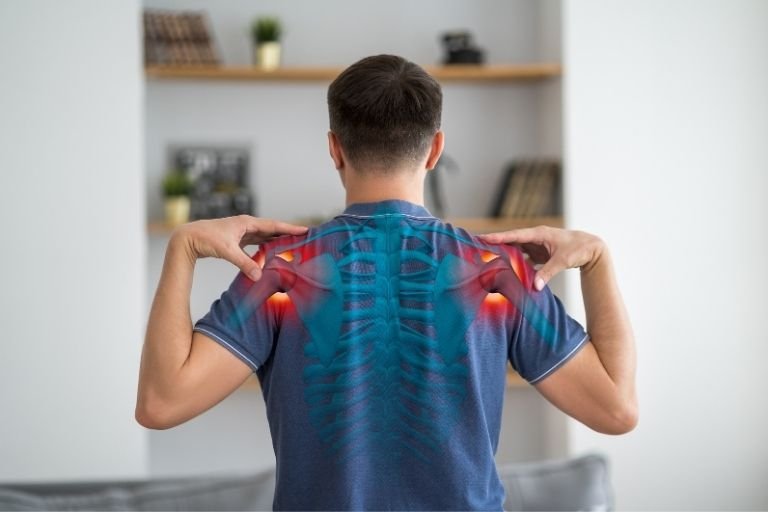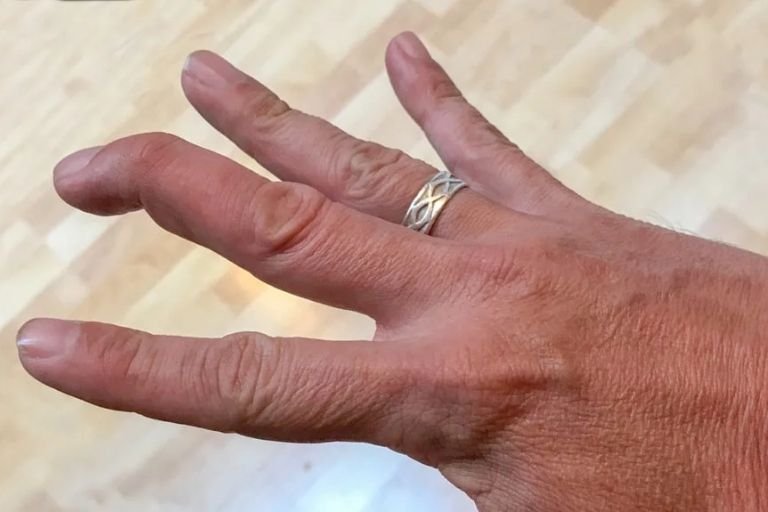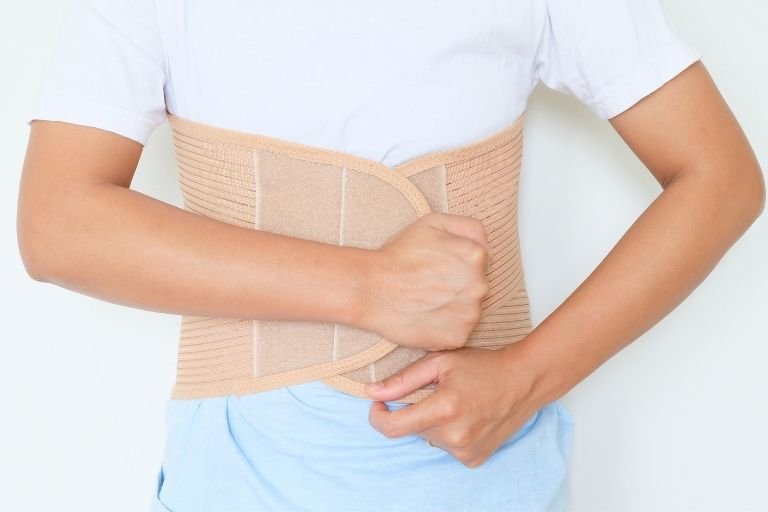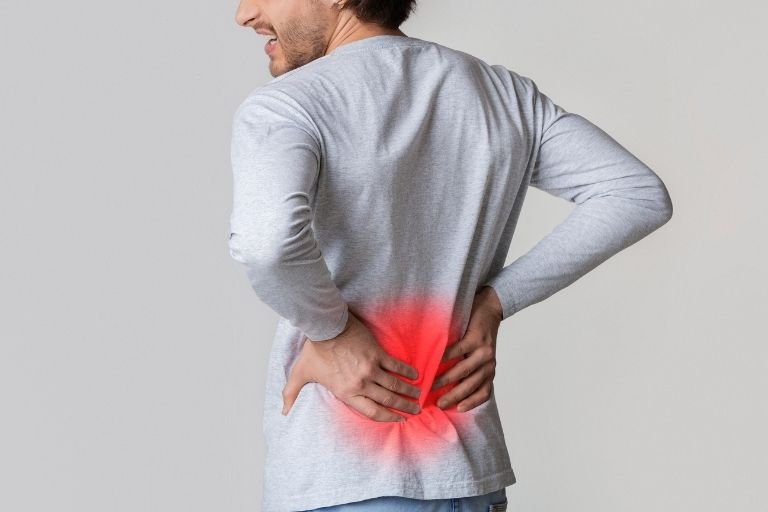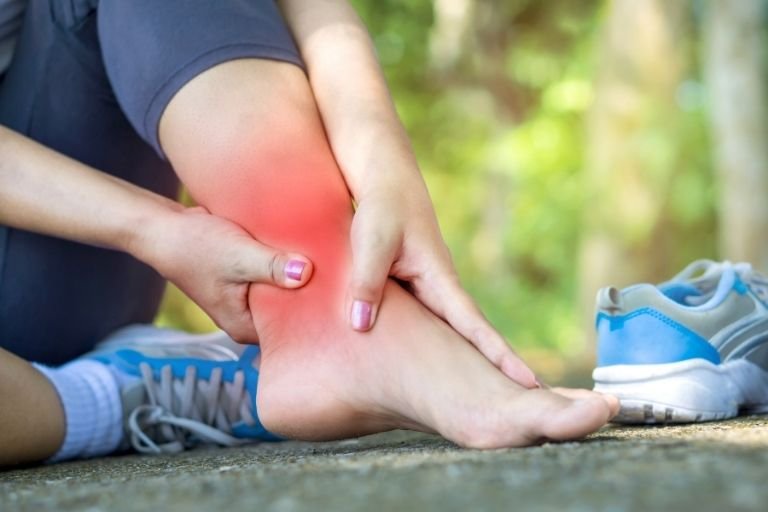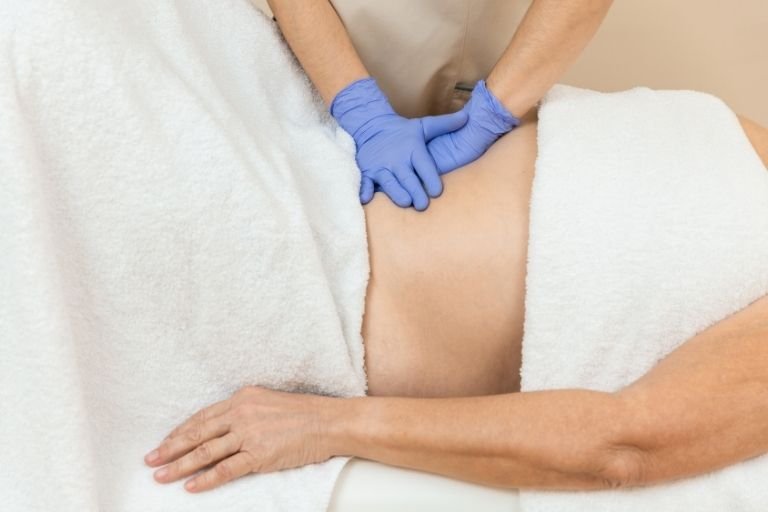- Fitwell Physiotherapy
Muscle Spasm
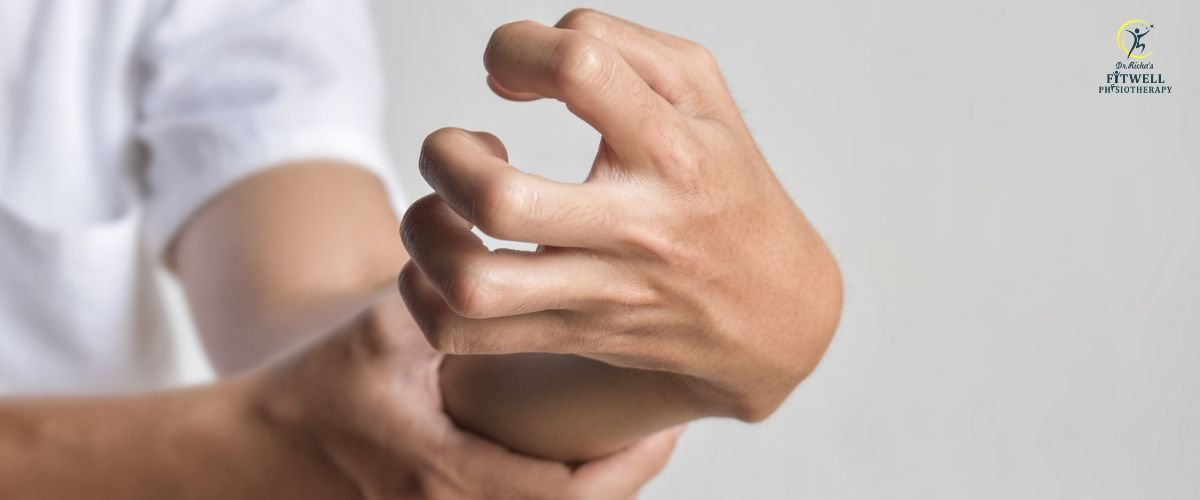
Muscle spasms, also known as muscle cramps or charley horses, are sudden, involuntary contractions of one or more muscles. They can be incredibly painful and disruptive, often catching individuals off guard. Understanding the symptoms, causes, and treatment options for muscle spasms is crucial for managing and preventing their occurrence.
Please submit your details below.
Symptoms:
- Sudden and intense muscle pain.
- Visible or palpable muscle twitching or contractions.
- Limited range of motion in the affected muscle.
- Temporary muscle weakness.
- Muscle stiffness or soreness after the spasm subsides.
Causes:
Muscle spasms can be triggered by various factors, including:
- Muscle Overuse: Engaging in strenuous physical activity without proper warm-up or stretching can lead to muscle fatigue and spasms.
- Dehydration: Inadequate fluid intake can cause electrolyte imbalances, leading to muscle cramps.
- Electrolyte Imbalance: Low levels of potassium, calcium, or magnesium in the body can contribute to muscle spasms.
- Poor Blood Circulation: Conditions like peripheral artery disease can restrict blood flow to muscles, increasing the likelihood of spasms.
- Nerve Compression: Pinched nerves or nerve damage can result in muscle spasms.
- Underlying Medical Conditions: Certain medical conditions such as multiple sclerosis, fibromyalgia, or Parkinson’s disease may increase the risk of muscle spasms.
When to See a Physiotherapist:
It is advisable to consult a physiotherapist if you experience frequent or severe muscle spasms, especially if they interfere with your daily activities or persist despite self-care measures. A physiotherapist can assess your condition, identify underlying causes, and develop a personalized treatment plan to alleviate symptoms and prevent recurrence.
Risks:
While muscle spasms are often benign and resolve on their own, they can sometimes indicate more serious underlying issues. Ignoring persistent muscle spasms may lead to complications such as:
- Muscle damage or injury.
- Recurrent spasms, which can affect mobility and quality of life.
- Chronic pain and discomfort.
- Decreased physical performance and functional limitations.
How to Prevent Muscle Spasms:
- Stay hydrated by drinking an adequate amount of water throughout the day.
- Maintain a balanced diet rich in potassium, calcium, magnesium, and other essential nutrients.
- Warm up before engaging in physical activity and stretch regularly to improve flexibility and prevent muscle fatigue.
- Practice proper ergonomics and posture to reduce strain on muscles and nerves.
- Address underlying medical conditions that may contribute to muscle spasms through medication, therapy, or lifestyle modifications.
Treatments:
Treatment for muscle spasms typically involves a combination of self-care measures and medical interventions, including:
- Rest and Gentle Stretching: Allow the affected muscle to rest and gently stretch it to relieve tension and promote relaxation.
- Heat Therapy: Applying heat packs or taking warm baths can help relax muscles and alleviate pain associated with spasms.
- Hydration and Electrolyte Replenishment: Drink fluids containing electrolytes or consume foods rich in potassium, calcium, and magnesium to restore electrolyte balance.
- Massage and Manual Therapy: Massaging the affected muscle or receiving manual therapy from a physiotherapist can help release tension and improve blood circulation.
- Medications: Over-the-counter pain relievers, muscle relaxants, or prescription medications may be prescribed to manage pain and muscle spasms.
- Physical Therapy: A physiotherapist can design a customized exercise program to strengthen muscles, improve flexibility, and prevent future spasms.
- Injections: In severe cases, injections of botulinum toxin (Botox) or corticosteroids may be recommended to relieve muscle spasms and associated pain.
In conclusion, muscle spasms are common and usually benign, but they can be extremely uncomfortable and disruptive. By understanding the causes, symptoms, and treatment options for muscle spasms, individuals can take proactive steps to prevent their occurrence and effectively manage symptoms when they arise. Seeking guidance from a physiotherapist or healthcare professional is advisable for persistent or severe muscle spasms to rule out underlying medical conditions and receive appropriate treatment.
Frequently Asked Questions
Related Conditions
How Fitwell Physiotherapy Can Help?
Dr. Richa’s Fitwell physiotherapy has an extensive team of physiotherapists all within their own specialist areas of physiotherapy. Whatever your condition, we guarantee that we will have the best physiotherapist for you. We assess, diagnose, plan, cure and care for you.
Fitwell Physiotherapy Clinic, Pune provides you best physiotherapy treatment in Kharadi, pune. We also serve Chandan Nagar, Vadgaon Sheri, Keshav Nagar, Wagholi & nearby Areas in Pune. We are experts in treating Neck Pain, Hand Pain, Back Pain, Lower Back Pain, Knee Pain, Stiff Neck, Sciatica, Arthritis, Stroke Paralysis & Post Surgical Rehab.
We provide Specialized physiotherapy treatments in Sports Injuries, Pre and post Surgery, Neurologic, Pediatric, Chronic Pain/Fatigue, Rheumatology, Women’s Health, Men’s Health, Ergonomics, Vestibular, Amputees & all sort of Pain treatment and lifestyle conditions.






















